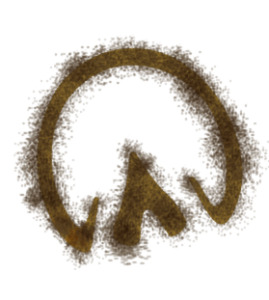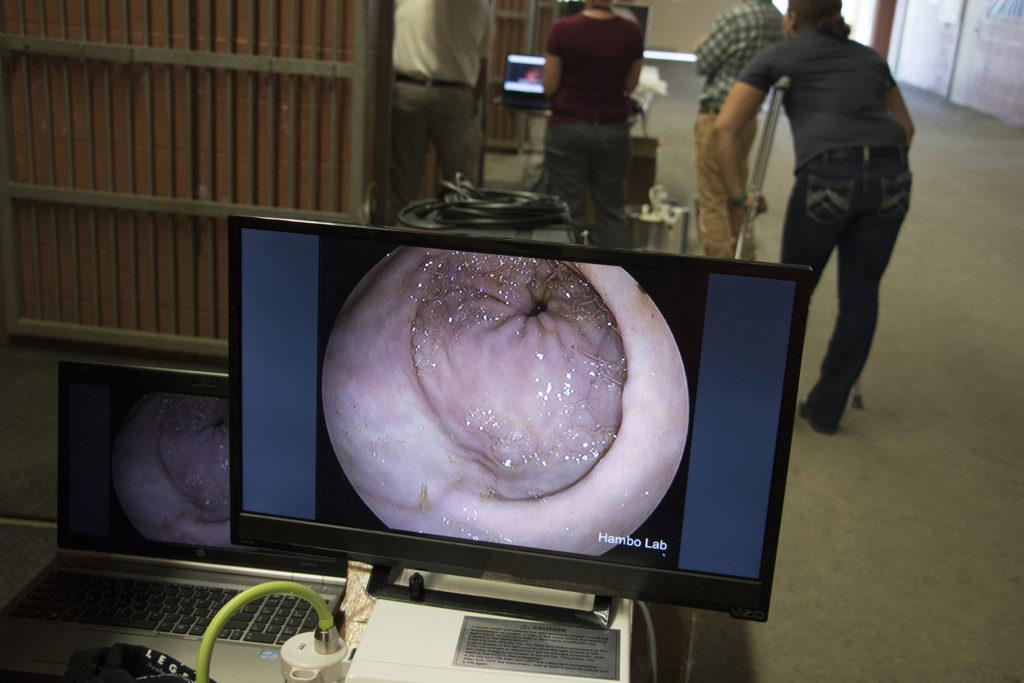Hay everyone,
It has been a little over a month since school first started, and I have not been feeling the best. I think it is because I am still stressed and adjusting to the kids going back to school. I’ve noticed my appetite has decreased and my stomach has been in a lot of pain. My owner noticed and called the veterinarian out to the barn to perform an endoscopy. This means she put a tube with a small camera on it up my nose, and proceeded to push it down my throat into my stomach! Not going to lie, it was somewhat uncomfortable!! But of course, I was a good boy, and I got a strawberry frosted donut as a reward afterwards!
Anyway, the camera showed the veterinarian that I had lesions on the inside of my stomach. These lesions and areas of inflammation are referred to as ulcers. The veterinarian explained to me that ulcers are very common in horses and humans because in stressful situations, proper digestion is compromised when the hormone cortisol is released excessively! Remember, in the last post we discussed how cortisol is referred to as the “stress” hormone. Essentially, the mucous lining in my stomach was weakened and inflamed, and the acid within my stomach continued to aggravate the lesions.
This computer displays the internal body systems of a horse during an endoscopy. The procedure starts in the nasal cavity and then the camera is propelled through the digestive system, which allows the veterinarian to see if a horse has stomach ulcers present!
Stress is not the only cause of ulcers in horses! Many other factors such as diet, exercise, and medications (NSAIDS) can make the stomach lining susceptible to ulceration. Fortunately, ulcers can be treated and cured! It is important to note the ulcers need to be healed before offering supplemental care. Studies have shown an effective treatment to heal ulcers is omeprazole because it stops gastric acid secretion. Make sure to discuss with your veterinarian the treatment course and dosage of omeprazole for your horse! Typically, most horses are treated for approximately one month.
Once the ulcers have healed, there are other steps you can take to avoid them from reoccurring. First, you can offer hay to your horse more frequently throughout the day; the key is to prevent your horse from fasting throughout the day. Because a horse’s stomach is continually producing acid, it is important to make sure food is available to be continually digested! In addition, frequent feedings stimulate more saliva production, which is nature’s best antacid! Also, at the discretion of your veterinarian, try to offer more alfalfa in your horse’s diet. Alfalfa is naturally high in calcium, so it is like the equine version of TUMS! Fortunately, I started my first dose of omeprazole today, and my owner has added some extra alfalfa to my diet. I am trying my best to not be as stressed, and hopefully these ulcers will be cured soon. If you think your horse is suffering from ulcers, do not hesitate to reach out to your veterinarian for an endoscopy! Until next time folks!
Your Pal,

Lord Nelson


Comments (1)
RU Coming to the Horse Management Seminar? | Equine Science Center
May 24, 2018